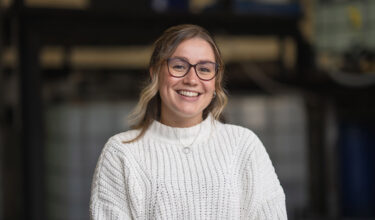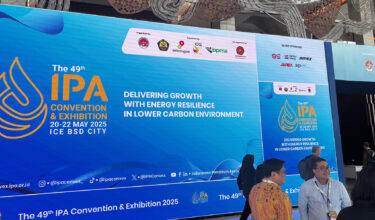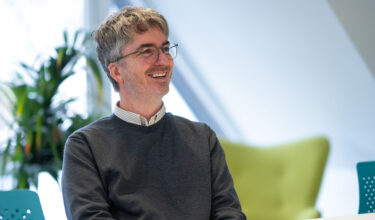Creating New Products & Keeping it Simple: Q&A with Marcus Davidson, Chemical Specialist
A chat with our chief chemist Marcus — discussing technical decision-making, our approach to 'Smarter Chemistry' and what the future holds...

Marcus Davidson, FIS Chemicals Chemical Specialist
• • •
FIS:You came to FIS in 2021, what was your career path before joining us?
Marcus: Yes, started working for FIS in May of that year. After finishing my doctorate at the University of Dundee I spent the next 8 years working in research and development in a university setting — in fields ranging from high temperature superconductors, nano-scale electronics and biomaterials.
In 2006, I entered the world of industry with oilfield services provider Baker Hughes as a development scientist, progressing to R&D manager — overseeing a team of scientists in Aberdeen and supporting their drilling and completion fluids product line.
Following that, I worked as an applications specialist for a large chemical company, supporting their oil & gas segment.
"Creating new products is what drives me, and I get a lot of satisfaction seeing something developed on the laboratory bench progress to orders of many thousands of litres."
FIS: Tell us a little bit about your role and its main aims and objectives.
MD: I’m the technical manager at FIS Chemicals, meaning I take responsibility for many of the technical decisions that need to be made.
This can involve simple things — like approving a new vendor — to more complex new product development projects. Creating new products is what drives me, and I get a lot of satisfaction seeing something developed on the laboratory bench progress to orders of many thousands of litres.
FIS: We talk about 'Smarter Chemistry' a lot at FIS — and it spans everything from our R&D capability to producing products that are better for the environment. What does it mean to you?
MD: Chemicals are expensive in terms of the raw materials and the energy required to produce them. I try and impress on everyone, including my family, that we should minimise chemical usage wherever possible to lessen our impact on the environment.
When formulating products for FIS and our customers I try to keep things as simple as possible, minimise the number of components in a formulation and, when possible, source the lowest impact materials.
Bio-based chemicals are widely available now and suppliers and customers are actively scrutinising their portfolio to ensure Environmental, Social, and Governance compliance.

FIS: What advice would you give a student who is studying and hoping to get into the R&D, formulation and manufacturing side of chemistry?
MD: Keep an open mind, question the status quo, never stop learning.
"Reducing the impact to the environment by moving to biodegradable and non-toxic alternatives is one way we can have a positive impact on future sustainability."
FIS: Once the work day is over, what do you do to relax?
MD: When the weather is fine, I like to be out pottering in the garden or greenhouse. I grow my own tomatoes and a small amount of other fruit and veg and think that if I wasn’t working with chemicals I would like to produce fruit and vegetables commercially.
FIS: What does the future of industrial chemistry look like? How can we continue to improve?
MD: A phrase that’s often used nowadays is “circular economy”. For the chemical industry, this may involve moving to renewable feedstocks to produce the raw materials and active components in our products.
Reducing the impact to the environment by moving to biodegradable and non-toxic alternatives is one way we can have a positive impact on future sustainability.
At FIS, we can have a direct influence on this not only by selecting “greener” alternatives but also moving to use more effective raw materials so that we can reduce the chemical requirements in our products without having a detrimental impact on performance.
For the latest news and updates from FIS, follow us on LinkedIn.





